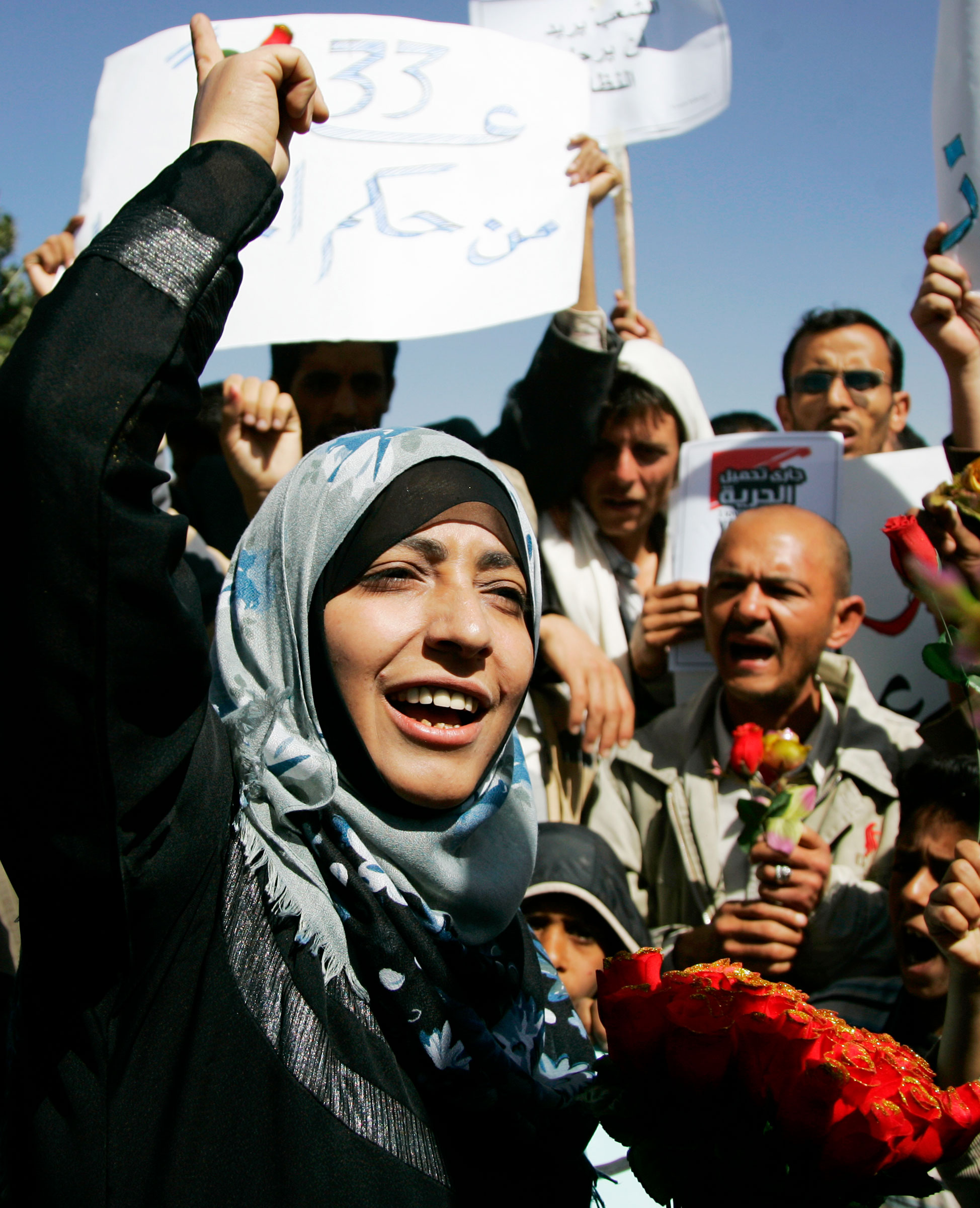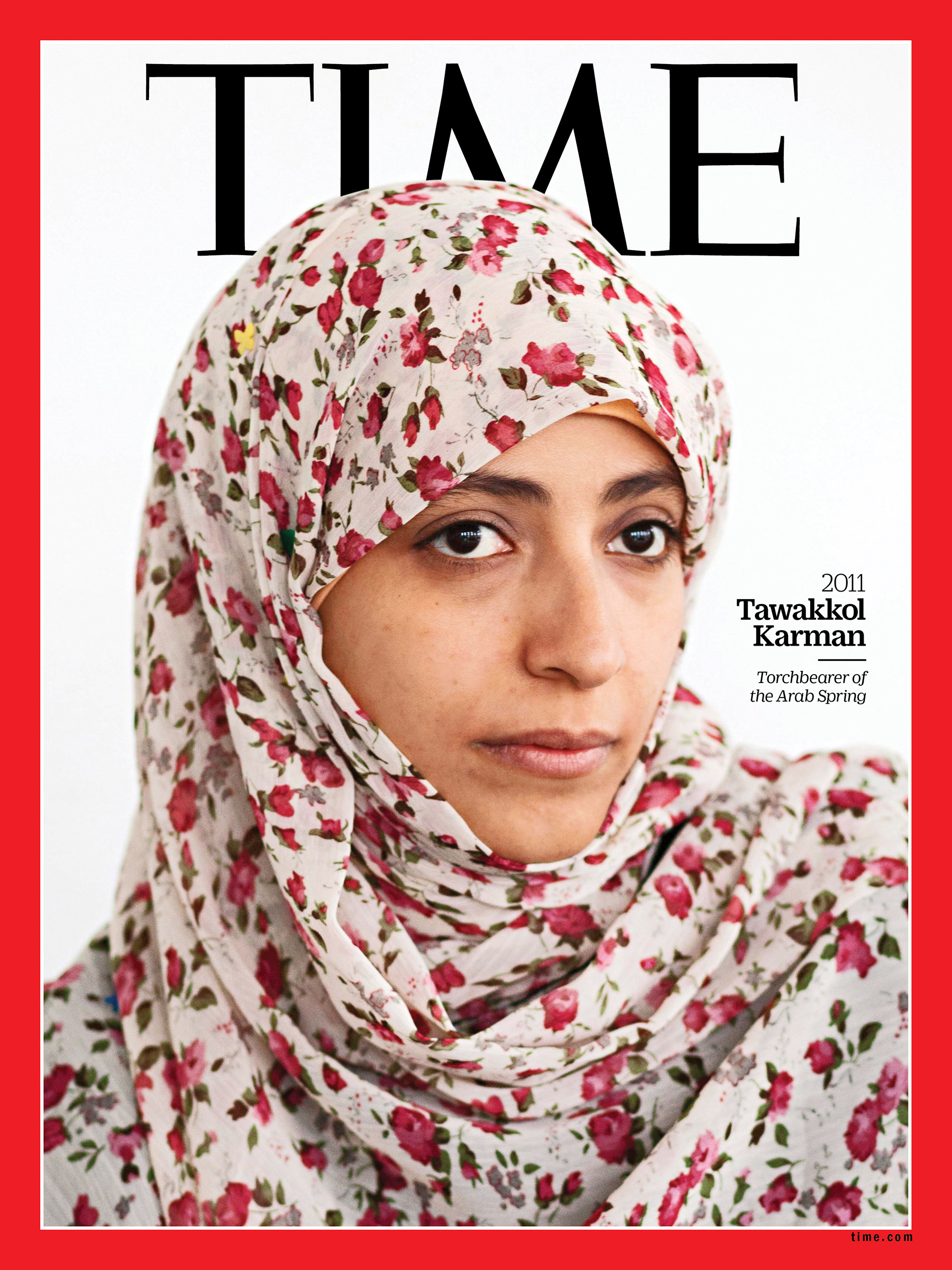When the Arab Spring came to Yemen in 2011, Tawakkol Karman was already on the front lines, having four years earlier begun a weekly protest against corruption in the streets of its capital. Defying her conservative Muslim country’s standards of acceptable female behavior, she called for the end of a regime she believed had robbed her nation’s youth of its future. As the mother of two daughters and a son, she wanted to ensure that women’s voices played a fundamental role in the revolution her country so badly needed. Her leadership at a sit-in that lasted several months earned her the nickname “Mother of the Revolution.” Her insistence on peaceful dialogue in the face of tear-gas volleys, police raids and a brutal massacre earned her the 2011 Nobel Peace Prize, shared with Liberian peace activists Ellen Johnson Sirleaf and Leymah Gbowee, for playing “a leading part in the struggle for women’s rights and for democracy and peace in Yemen.” She was the first Yemeni, the first Arab woman and the second Muslim woman to win a Nobel, and, at 32, the youngest Peace Prize laureate at the time. —Aryn Baker

This article is part of 100 Women of the Year, TIME’s list of the most influential women of the past century. Read more about the project, explore the 100 covers and sign up for our Inside TIME newsletter for more.
